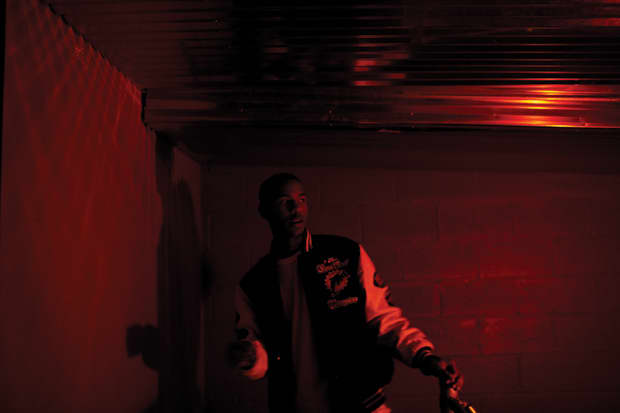 In the spring of 1995, amidst a bid to snap back from the commercial failure of an album called Juvenile Hell, Mobb Deep’s Prodigy offered unrepentant insight into the desperation of his adolescence. I’m only nineteen but my mind is old/ And when the things get for real, my warm heart turns cold, he rapped on the seminal “Shook Ones Pt. II.” Lex Luger, the 19-year-old producer of “Hard In Da Paint,” 2010’s most riotous rap single, and the song that kicked in front doors across America for Waka Flocka Flame, knows the feeling. “At the end of the day, my homeboys is still in the streets,” Luger says. “That ain’t no hidden part of life. People struggle, people do sell drugs and get murdered. That’s what I be around, that’s what I’m used to making.” Music made, in a manner of speaking, for real niggas who ain’t go no feelings.
In the spring of 1995, amidst a bid to snap back from the commercial failure of an album called Juvenile Hell, Mobb Deep’s Prodigy offered unrepentant insight into the desperation of his adolescence. I’m only nineteen but my mind is old/ And when the things get for real, my warm heart turns cold, he rapped on the seminal “Shook Ones Pt. II.” Lex Luger, the 19-year-old producer of “Hard In Da Paint,” 2010’s most riotous rap single, and the song that kicked in front doors across America for Waka Flocka Flame, knows the feeling. “At the end of the day, my homeboys is still in the streets,” Luger says. “That ain’t no hidden part of life. People struggle, people do sell drugs and get murdered. That’s what I be around, that’s what I’m used to making.” Music made, in a manner of speaking, for real niggas who ain’t go no feelings.
Something of a prodigy himself, Luger, born Lexus Lewis in Suffolk, Virginia, made the beat for “Hard In Da Paint” when he was just 16 years old. By then, an uncle had given him a drum machine after noticing his nephew’s proficiency with composing music on the MTV Music Generator 2 game for the Playstation 2. Before dropping out, Luger spurned even high school dances for studio time, amassing a war chest of instrumentals, the earliest of which he’d provide to a burgeoning Waka Flocka.
“Hard In Da Paint” itself is unnerving. For all of Waka’s incorrigible energy, Luger’s whirling synth riff and acidic drum chops sound like a demonic carnival. From “Hard In Da Paint” came Rick Ross’ “B.M.F. (Blowin’ Money Fast),” which led to work with Kanye West on “See Me Now,” an iTunes bonus from the My Beautiful Dark Twisted Fantasy album, and “H.A.M.,” the first single from West’s Watch The Throne EP with Jay-Z. At 19, Lex Luger alone is responsible for the resurrection of crunk. Through a uniform, though undeniable, production style he’s already built one star from the ground up and had rap’s most established summon him to fortify their appeal. Yet and still, as Luger’s booking requests increase to the point of abandoned Gmail accounts and rapid fee hikes, he is forthright about the future of the very force that cast him as re-animator. “Once that sound die out and another one coming in, you can’t stick in that same mind frame,” he says. “An artist got to use that to his advantage and then go with the next, cause it ain’t going to be here forever.”
There might be a hundred more “B.M.F.”s buried in DatPiff’s archives right now, potential club killers whose Luger production goes underutilized by no-name Brick Squad affiliates. But Luger’s already expansive catalogue isn’t so much a sign of failed discretion as it is an omen of budding influence. “I just got to keep working,” he says. “I been seeing a lot of young niggas do that. They ain’t just getting high, getting drunk or wanting to party, they be on they job now.”



